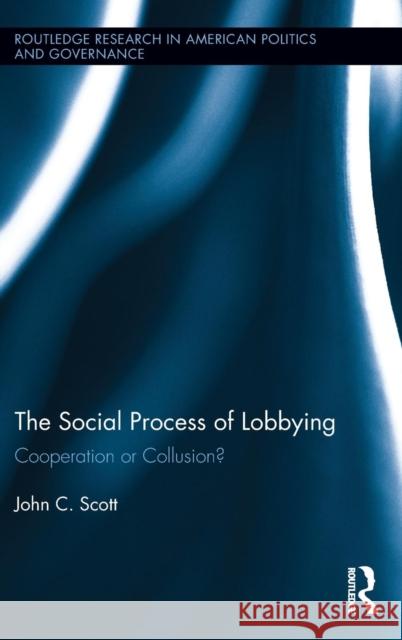The Social Process of Lobbying: Cooperation or Collusion? » książka
The Social Process of Lobbying: Cooperation or Collusion?
ISBN-13: 9780415727174 / Angielski / Twarda / 2014 / 212 str.
The Social Process of Lobbying: Cooperation or Collusion?
ISBN-13: 9780415727174 / Angielski / Twarda / 2014 / 212 str.
(netto: 440,37 VAT: 5%)
Najniższa cena z 30 dni: 458,60
ok. 22 dni roboczych.
Darmowa dostawa!
Despite a wealth of theorizing and research about each concept, lobbying and norms still raise a number of interesting issues. Why do lobbyists and politicians engage in cooperative behavior? How does cooperative behavior in lobbying affect policy making? If democratic participation is good, why do we view lobbying as bad? Lobbying engenders debate about its effects on the political process and on policy development. Sociologists and other social scientists remain concerned about how norms emerge, the content of norms, how widely they are distributed, and how they are enforced. Political scientists study how interest groups work together and influence the political process. Based on the experience of the author, a former lobbyist, this book looks at the social norms of lobbying and how such norms work in a general framework of other norms and legal institutions in the political process. In developing this argument, John C. Scott claims that:
- Embedded social relationships and trust-based social norms underpin everyday interactions among policy actors.
- These relationships and norms have concrete impacts on the policy making process.
- Social relationships and norms inhibit participation in the political process by outside actors.











